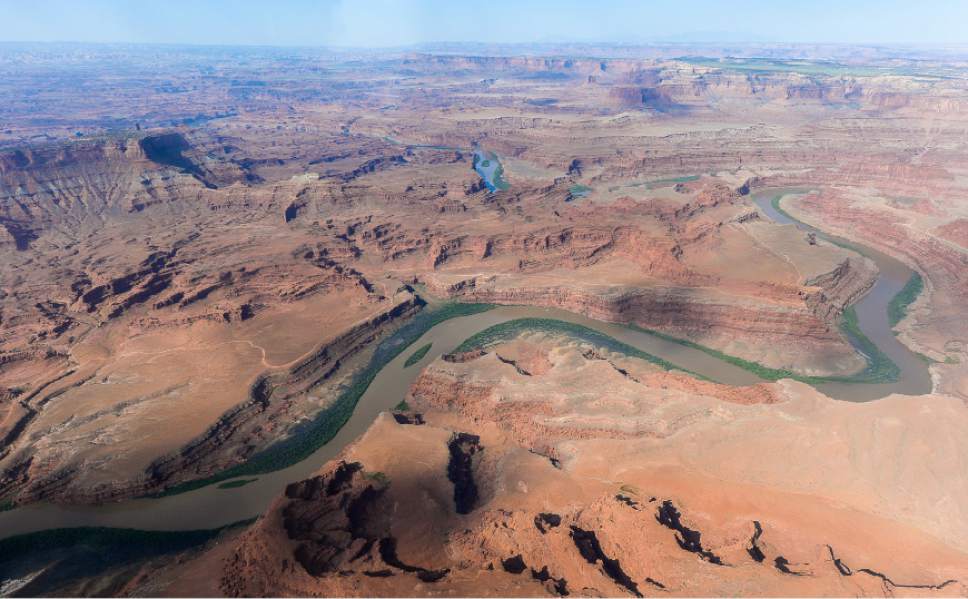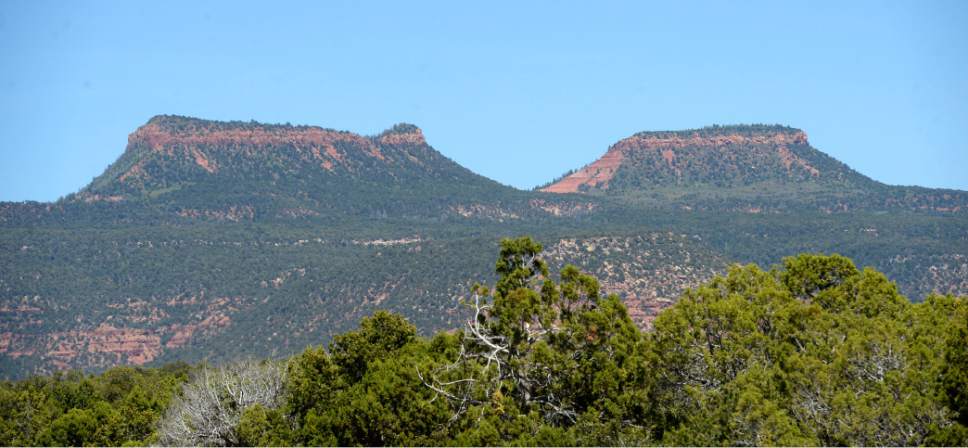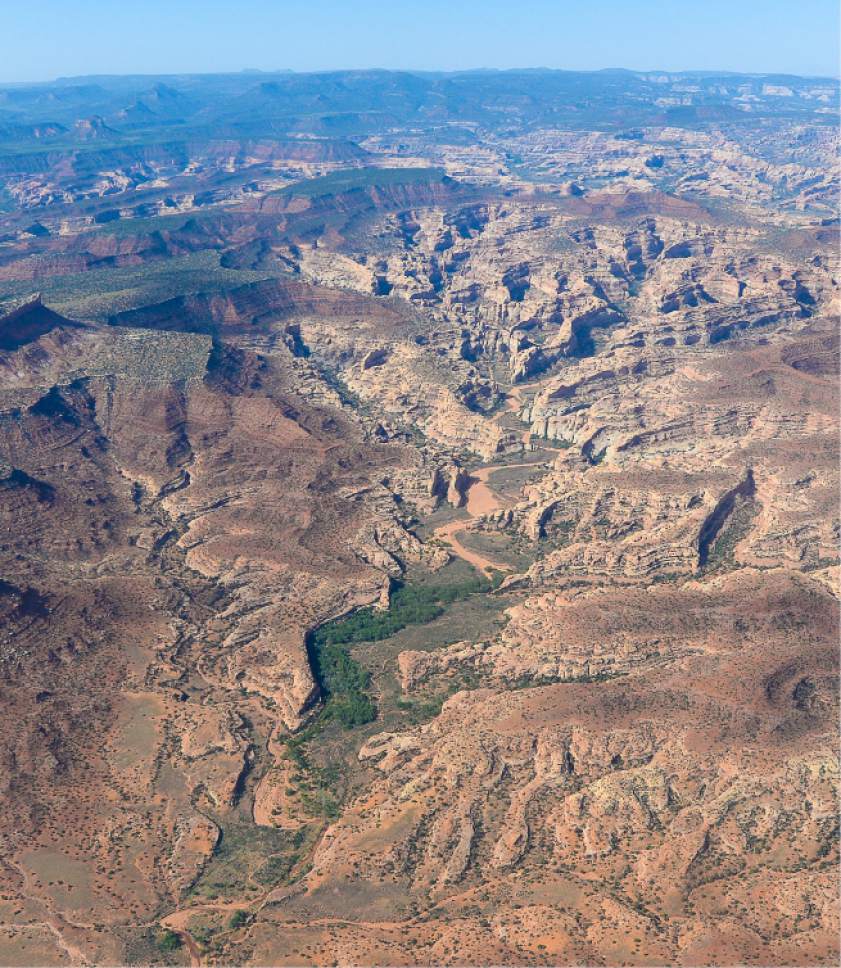This is an archived article that was published on sltrib.com in 2016, and information in the article may be outdated. It is provided only for personal research purposes and may not be reprinted.
Washington • The House Natural Resources Committee advanced the Public Lands Initiative on Thursday, moving the bill to the full House with a week to go before Congress adjourns until after the election.
The PLI, sponsored by Utah Reps. Rob Bishop and Jason Chaffetz, would protect part of the Bears Ears region while opening other swaths of land for oil and gas development. The measure, which the Utah members are trying to fast-track to halt a potential national monument designation by President Barack Obama, was approved by a party-line vote of 21-13 following a sometimes testy debate.
While the bill has moved swiftly in the Natural Resources Committee, headed by Bishop, it's unclear when House leaders will bring it up for a full vote. A Senate version has yet to be introduced. And the Bureau of Land Management and the U.S. Forest Service oppose the legislation, increasing the possibility Obama would veto the bill if it did get to his desk.
Bishop and Chaffetz insist there is still time to pass the legislation, even if it must happen during a lame-duck session after the election. Bishop says the PLI is a bill "developed by Utahns for Utah" and is locally driven not Washington-driven.
"Historic land disputes and scarce revenue for our children's education will soon be a mark of the past for our state," Bishop said, referring to part of the legislation that exchanges school trust lands parcels for federal acreage that can be developed. "The bill will provide land-use certainty, proving that conservation and economic development can coexist to build a new future of prosperity for our children."
Chaffetz said the PLI is a "balanced, bipartisan" measure that should show Utah's leaders are trying to find a consensus decision to a contentious problem. Utah's delegation, along with Gov. Gary Herbert, see this legislation as a way to head off a Bears Ears National Monument, which Obama could create on his own.
"Instead of the arrogance of a unilateral designation by a president who has never visited these areas, this bill enjoys broad local support after a very open and transparent process," Chaffetz said.
Critics of the bill, including tribal leaders and environmental groups, say the PLI has no chance of passage and have urged Obama to use his power under the Antiquities Act to designate 1.9 million acres in southeastern Utah as a national monument.
"With virtually no time left for Congress to act, the clock has run out on the Public Lands Initiative—and for good reason," said Paul Spitler, director of wilderness campaigns at The Wilderness Society. "The legislation fails to honor local agreements and instead advances a one-sided agenda that lacks public support and places America's most significant ecological, historical and cultural resources at risk. We urge the Congress to reject this short-sighted initiative."
Democrats attempted to change the language of the PLI during Thursday's hearing — including striking a provision to allow roads in wilderness areas, blocking the taking of any Ute tribal land and standardizing exchanges between school trust lands and federal acres — but those efforts failed on party-line votes.
Rep. Raul Ruiz, D-Calif, criticized the bill's proponents for arguing that American Indians supported the bill by relying on the support of San Juan County Commissioner Rebecca Benally, the only Navajo holding elected office in Utah. Her district includes the Bears Ears area.
"Saying that the Navajo Nation supports this land grab because one Navajo woman acting as a commissioner is like using her as a token spokesperson for her nation. That is wrong," Ruiz said. "The Navajo Nation under their president and their council opposes this land grab and they are in solidarity with the Ute Nation."
Hours after the hearing, Chaffetz demanded that Ruiz apologize to Benally for using the word "token."
"There is absolutely no excuse for the degrading and disrespectful way in which Congressman Ruiz referenced Commissioner Benally," he said in a statement. "She in no way deserves to be called a 'token,' nor to have her legitimacy as an elected official questioned."
Ruiz's spokesman Alex Macfarlane responded by saying: "There's nothing to apologize for."
— Tribune reporter Matt Canham contributed to this article









